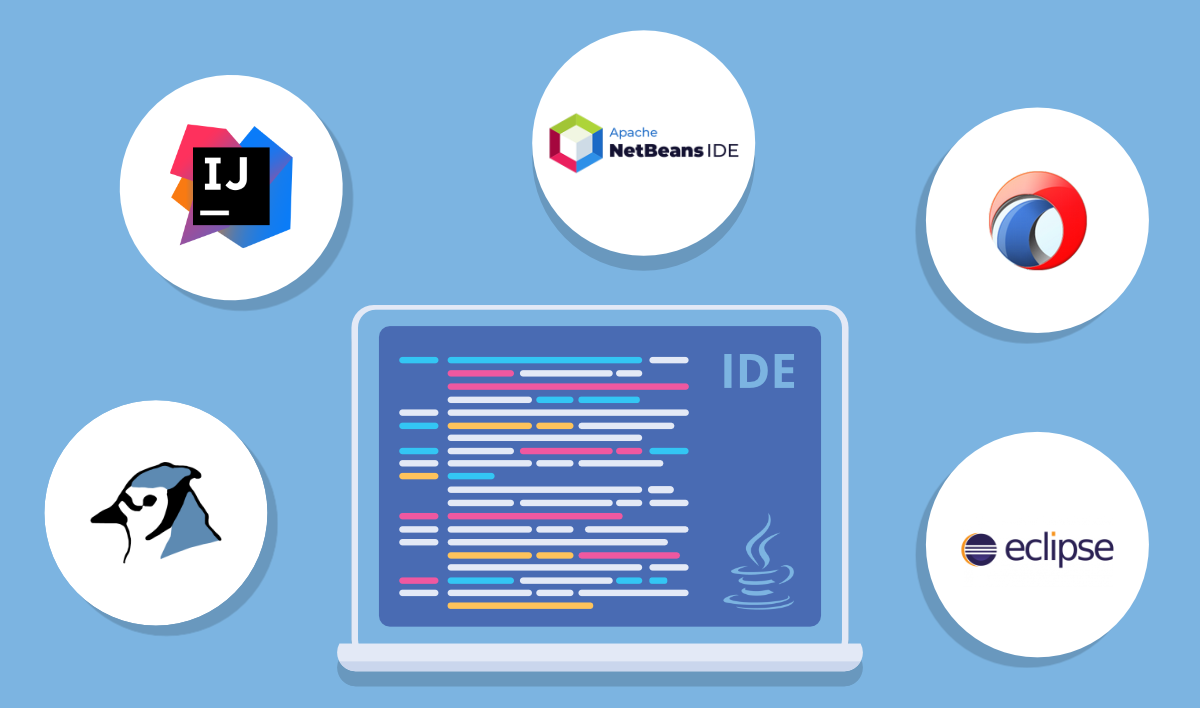
Introduction
Integrated Development Environments (IDEs) and code editors are essential tools for software development. They provide developers with a unified platform to write, debug, and manage their code efficiently. Java, being one of the most widely used programming languages, has a plethora of IDEs and editors available. In this blog post, we will explore the top Java IDEs and editors in 2023 that can enhance productivity and streamline the development process.
- IntelliJ IDEA:
Integrated Development Environments (IDEs) and code editors are essential tools for software development. They provide developers with a unified platform to write, debug, and manage their code efficiently. Java, being one of the most widely used programming languages, has a plethora of IDEs and editors available. In this blog post, we will explore the top Java IDEs and editors in 2023 that can enhance productivity and streamline the development process.
- Eclipse:
Eclipse has long been a favorite among Java developers due to its robust plugin system and extensive customization options. It provides a rich set of features including code refactoring, debugging tools, and support for multiple programming languages. Eclipse’s versatility and wide adoption in the industry make it a reliable choice for both beginners and experienced developers.
- NetBeans:
NetBeans is an open-source IDE specifically designed for Java development. It offers a user-friendly interface and a comprehensive set of tools for code editing, debugging, and project management. NetBeans’ seamless integration with Java frameworks and its cross-platform compatibility make it an attractive option for developers.
- BlueJ:
BlueJ is a lightweight and beginner-friendly Java IDE that prioritizes simplicity and ease of use. It provides a visual environment for learning Java and offers features such as interactive object inspection and a straightforward code editor. BlueJ’s focus on educational purposes makes it an excellent choice for teaching Java programming concepts.
- JDeveloper:
JDeveloper, developed by Oracle Corporation, is a powerful IDE for Java development with support for multiple programming languages. It offers a range of tools for Java, SQL, JavaScript, HTML, and more. JDeveloper’s strong debugging features and its web development environment make it suitable for enterprise-level Java development.
- JCreator:
JCreator is a relatively new Java IDE that has gained popularity among front-end developers. It stands out for its speed, efficiency, and a user interface reminiscent of Microsoft Visual Studio. JCreator offers advanced features like code completion, debugging tools, and syntax highlighting, making it a great choice for developers seeking a lightweight and fast IDE.
- DrJava:
DrJava is a lightweight IDE developed by the JavaPLT group at Rice University. It focuses on simplicity and interactivity, offering features such as a built-in debugger and seamless integration with Eclipse. DrJava’s lightweight design enables quick code execution, making it suitable for small projects and educational purposes.
Conclusion
Choosing the right Java IDE or code editor is crucial for efficient and streamlined development. In 2023, IntelliJ IDEA, Eclipse, and NetBeans continue to be the top choices for Java development, offering a wide range of features, strong community support, and seamless integration with popular frameworks. BlueJ and JDeveloper cater to specific needs, providing simplicity for beginners and enterprise-level capabilities, respectively. JCreator and DrJava offer lightweight alternatives with fast performance and interactive features.
Ultimately, the best Java IDE or editor depends on the specific requirements of the project, the expertise of the developers, and personal preferences. Evaluating the features, performance, and compatibility of each IDE or editor will help developers make an informed decision and maximize their productivity in Java development.
Related Posts
Enhance Your Onboarding Process with These 7 Tips
The onboarding process plays a crucial role in shaping an employee’s experience and productivity from…
Crafting an Attention-Grabbing LinkedIn Profile.
Your LinkedIn page is one of the most efficient tools in your job search. With…
Creating the Future Social Workforce
In today’s rapidly evolving world, the field of social work plays a vital role in…
Metaverse Shopping: Experience the Future of Shopping!
How well this mistaken ideas off denouncing pleasure & praisings will give you complete.






